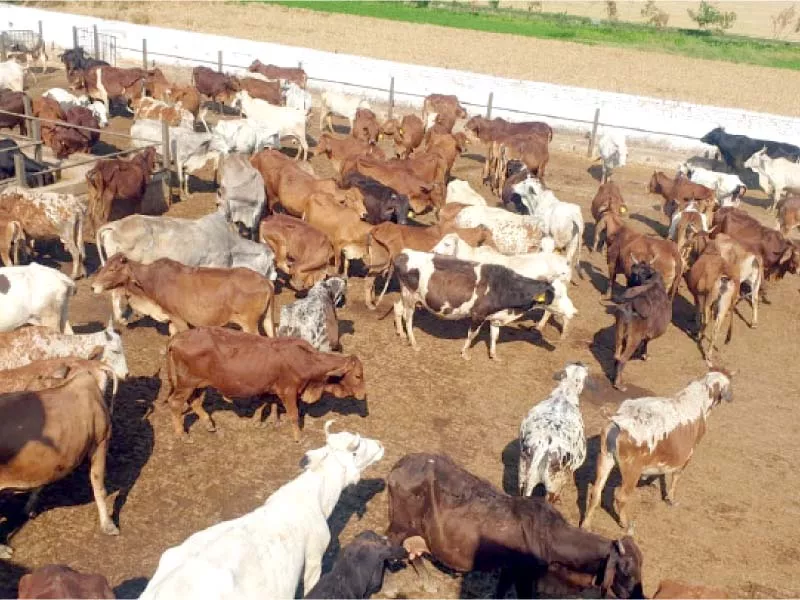Livestock sector suffers in lockdown
Changing demand, supply patterns badly affect farmers
RAHIM YAR KHAN: Along with industry and trade, the livestock sector, which contributes around 12% to the domestic economy, has also been badly affected due to the closure of markets and public and private companies over the past 12 days due to the lockdown imposed to curb the spread of coronavirus.The fall in consumption of milk and meat has affected 110 million farmers, directly or indirectly associated with the production and delivery of livestock milk and meat. The sale of livestock in the markets has stopped due to the reduced sale and consumption of milk and meat.
Thousands of litres of milk is wasted every day, The Express Tribune learnt. The livestock sector could not be provided any facilities such as tax exemption and other concessions that were provided by the government to the trade and commerce sector. Farmers suffer losses due to the stoppage of the sale of milk. On the agenda of foreign companies, the elements associated with the dry milk business mobilised to take advantage of the situation. These elements reportedly wrote a letter to the prime minister after Punjab Chief Minister Sardar Usman Buzdar did not allow free duty on import of dried milk from European countries.
COVID-19: Russia cases top 4,000, death toll at 34
Officials of Buffalo Breeders Association Pakistan, said imports of dry milk, from coronavirus-hit countries, would increase the risks as well as the local livestock sector will also be affected. As per the details, along with industries and trade, the livestock sector, which is the earning source of millions of families had been badly affected due to the lockdown across the country in order to overcome the coronavirus.
The prime minister announced tax exemptions for textile and other industrial sectors including low interest rate loan and other benefits, but the livestock sector, which contributes 12% to the domestic GDP, was forgotten. The cattle markets are closed and milk sales have dropped by 70%.
Buffalo Breeders Association Pakistan General Secretary Mian Samiullah told the media that the dairy industry is an important part of the livestock sector.
“This sector is an important source of raw materials for leather, carpet and wool industries besides milk and meat which accounts for 8.5% of exports of the country.
Livestock is the largest source of income for about 9 million small and poor farmers in the countryside, said Executive Member Rana Amir Mohammed. He added that every household in Pakistan's rural areas has between one to six cattle and buffaloes, which are about 91.4% of the country while the number of farms in the country, which keep more than 30 buffaloes and cattle, is about 30,000.
According to another livestock survey, the number of buffaloes in Pakistan is about 37,500,000, the number of sheep is 30 million, the number of goats is 750 million and the number of camel is 1.1 million.
Eight women from K-P quarantined in Matiari seminary
Pakistan has become the third largest milk producing country in the world while, in terms of the number of buffaloes, it is the second largest country.
The general secretary maintained that more than 70% of the people in the villages are associated with the livestock sector. According to an estimate, Pakistan is producing 43 million tonnes of milk annually, which is obtained from 72% of the country’s buffaloes, 24% of cows and 4% of goats. This milk is worth around Rs1.70 trillion.
The annual consumption of raw milk in the country is more than 35 million tonnes, out of which 58% is supplied to the cities.
Daily milk consumption in Lahore is more than 3 million litres, he added. “Elements compensated by the foreign companies are advising the government to export milk instead of investing in innovation of the livestock sector in the country.”
Published in The Express Tribune, April 4th, 2020.


COMMENTS
Comments are moderated and generally will be posted if they are on-topic and not abusive.
For more information, please see our Comments FAQ